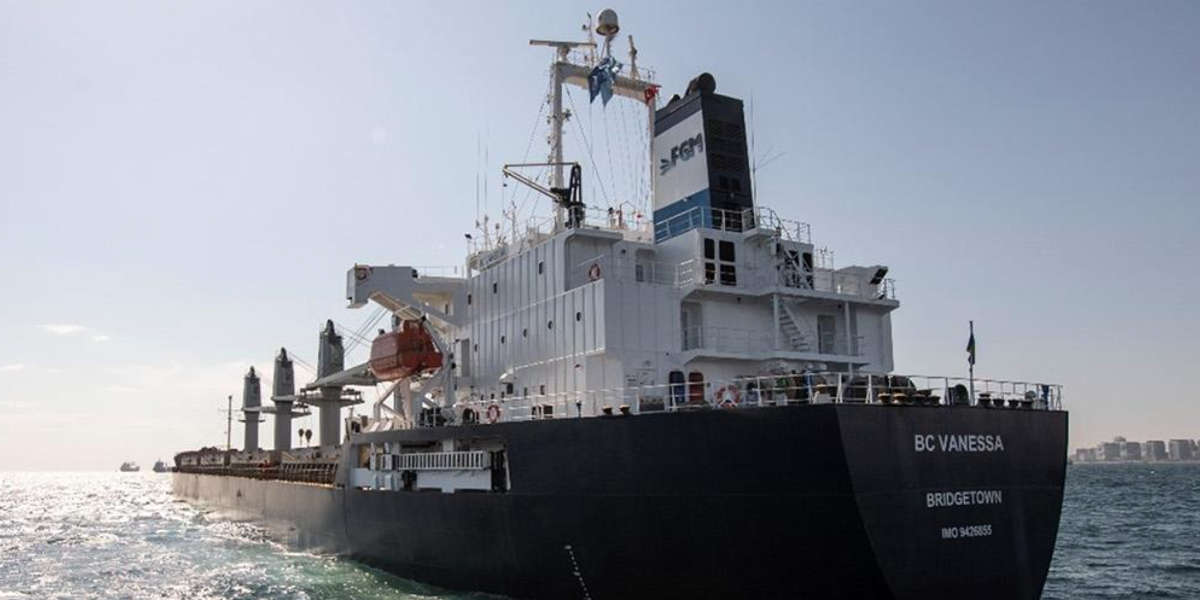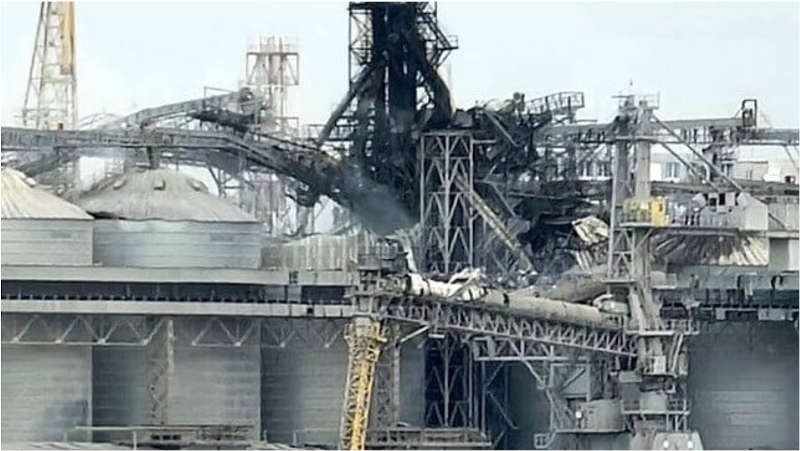Implications for Black Sea maritime security
The move by Russia has stirred up a wide and intense discussion over what should be done next. It is indeed a dangerous and escalatory move on Russia's side, with the potential to trigger even graver consequences for the security of the region, and effective ways to prevent this from happening must be found. But the main focus at the moment should be to find the best solution to ensure that the flow of grain and cereal can be restored as quickly as possible. In the words of Ukrainian Foreign Minister Dmytro Kuleba, "We had to find the way to export our grain to the global market. Land corridors cannot export the full amount of cereals available for export, this is the issue, which means prices will go up because of shortages of delivery".
Yet, this is easier said than done, and numerous factors will have to be weighted. Below we describe the most relevant of them, and their implication in this incident.
Black Sea Grain Initiative: As already said, grain and fertilizer exports coming out of Ukraine with the UN's World Food Initiative are crucial for many countries all over the globe. Up until now, they have been a food security guarantee for several nations in Africa, but also in Europe. Russia and Ukraine account for 30% of global wheat exports, being the top and fifth largest exporters respectively. Since the establishment of the initiative, and until a few days ago, around 33 million tons of grain and related foodstuffs have been exported from the region, with 65% of the total amount reaching developing countries in the African continent.
The disruption of all such flows of foodstuff and fertilizers from the Black Sea will translate in an escalation in food prices in many (if not all) places. But most importantly, it puts many countries at risk of a massive starvation. Ukraine has established an alternative route, closer to their territorial waters and into Romanian waters, to enable at least a reduced amount of cereal to keep flowing. In a letter sent to the International Maritime Organization, Ukraine announced its decision with the sole goal of facilitating "the unblocking of international shipping in the north-western part of the Black Sea."
Reports have also indicated that Ukraine proposed the US that the new route sails across the territorial waters of its Black Sea neighbors and NATO members Romania and Bulgaria. The request, however, has been denied by NATO and the US, as Washington has backed down from providing any assistance for the moment. Yet, as we will later see, sending warships into the Black Sea to escort commercial vessels is much more delicate than it may appear at first. Another alternative which has been brought up is to transport the grain and fertilizer through the Rhine-Main-Danube Canal, which connects the Dutch port of Rotterdam with the Black Sea by means of connecting European rivers. Although feasible, it would only allow for a reduced amount of trade to be shipped, given the difference in water levels and the smaller size of ships which fit these rivers.
The Montreux Convention: Signed in 1936, by virtue of it, Turkey holds control of the Turkish Straits and their regulation. Almost at the beginning of the conflict, Turkey decided to close the Straits to Russian and Ukrainian warships, invoking Article 19. Such article states that during times of war and without Turkey taking part in it, warships will enjoy freedom of transit through the straits except for those of the countries involved in the conflict.
The current regulatory system that the Convention establishes is a factor of complication in the situation. Many have argued that NATO should send warships to assist the commercial vessels and protect transit. Yet, it is not as easy as it may first appear.
Any warship wishing to enter the Black Sea is under obligation to notify such intention to the Turkish Government at least eight days in advance (fifteen in case of any non-Black Sea power) including the destination, name and type of vessel (Art. 13). This makes it possible, to allow for NATO warships other than those from the Bulgarian and Romanian Navies to enter the region and provide escort to commercial vessels. In fact, there are precedents of warships being sent to escort shipping, with Operation Earnest Will. In the late 1980s, during the Iranian-Iraqi War, Iran attempted to close the vitally-important Strait of Hormuz (through which most oil is transported out of the Gulf). US Navy warships were then given the task of escorting US-flagged oil tankers through the strait to ensure that the flow of tankers was not disrupted, which they successfully did.
But in the case of the Black Sea, the above-mentioned regime for the Turkish Straits, and the situation of war in Ukraine, it is less likely that something similar will happen. Ukraine has no naval capacity to provide escort to the position ships, leaving all the work to NATO allies. However, demanding Turkey to open the straits them to enter the Black Sea would create a dilemma for Ankara, forcing them to allow Russian vessels to enter as well (or find a credible excuse for not doing so).
Need for mine warfare capabilities: Even if a way was found to allow NATO vessels to enter the region without risking allowing Russian ships to join the party, they would then have to face all the sea mines which have been laid across the region. Russia has been laying them over the past days, and Ukraine announced last year it had done the same in order to protect its commerce from Russian interference. With sea mines, commercial vessels are left completely defenseless, and those navies closest to the region do not have minesweeping capabilities strong enough so as to ensure that there won't be any incidents.
Thus, the obstacle NATO would face in case it decided to enter the region to assist commercial vessels appears to be anti-ship mines. The closest navies, also members of the Atlantic alliance, are Bulgaria and Romania, but neither of them has strong minesweeping capabilities to face the situation. They would require the assistance of Turkey or any other navy with stronger power, but so far, radio silence.
We need sea power
The first takeaway this piece aims to provide is how geopolitically complex the current situation is. Russia's move has been a bold one, which will have consequences no matter what. In the best-case scenario, the suspension of the Grain Initiative will be solved sooner than later, minimizing the negative effects for those nations which need grain and fertilizers more desperately. How can this be done is still something which remains to be seen. For the time being, Moscow has denied that its consideration of all inbound ships as potential weapon carriers means Russia will attack those ships. Still, beware of anyone little afraid of risking it all.
In the worst-case scenario, however, allied countries will take some time in figuring out a way to get around the situation, with significant disruptions of the commercial flow out of the Black Sea having a negative impact in many countries in the form of starvation and rising prices. Escorting ships in a region so vastly filled with anti-ship mines is inherently dangerous, and definitely not an easy task to undertake at this moment by the Allied navies of Romania and Bulgaria. Still, it cannot remain an excuse to refrain from proving the necessary assistance.
Another obvious conclusion that the current situation in the Black Sea has brought up is that NATO should invest in minesweeping capabilities if it wants to hold its capacity to ensure freedom of navigation in the future. The two decades following the end of Cold War were characterized by significant fiscal austerity in defense spending by most NATO powers, which translated in navies decreasing their number of surface combatants and assets, and lowering their level of preparedness for situations just like this one.
At the same time this is happening, the US has sent several warships to the Strait of Hormuz and the Gulf of Oman in the face of Iranian threats to shipping in the region. This proves that NATO (or, at least, the US) has the capacity to respond effectively to similar situations. Yet, if NATO navies wish to remain competitive in such a rapidly-changing maritime environment, they will have to get serious once more about defense spending. Standing NATO Maritime Groups (SNMGs) are a positive contribution by its members, providing a certain level of permanent presence across strategically important bodies of water. Yet, the incident in the Black Sea has reminded yet again about the need to strengthen their capabilities so that they can deliver.
In line with this, just like the drone attacks which have been taking place since last year have opened a new chapter in naval strategy, this episode is yet another testimony of the growing importance of maritime security that the war in Ukraine has left us. Just a simple move that reduces wheat and fertilizer exports from the Black Sea can have such a big impact on a global scale. It reminds us of how important freedom of navigation is in our time, and how crucial it is to protect it. As naval analyst Jim Hendrix argued a while back, everywhere we may look, we can observe sea power manifesting itself; just by going to the supermarket, or any clothing store. Chances are, 90% of what you we there has been brought to you through the sea. It follows, then, that in order to protect national and international shipping, stronger navies with advanced technologies and capabilities are a must for many-if not all-states.
Perhaps, it is time we pay sea power, and maritime security in general, the attention they deserve. Should we not, things will start to get worse, much worse.


